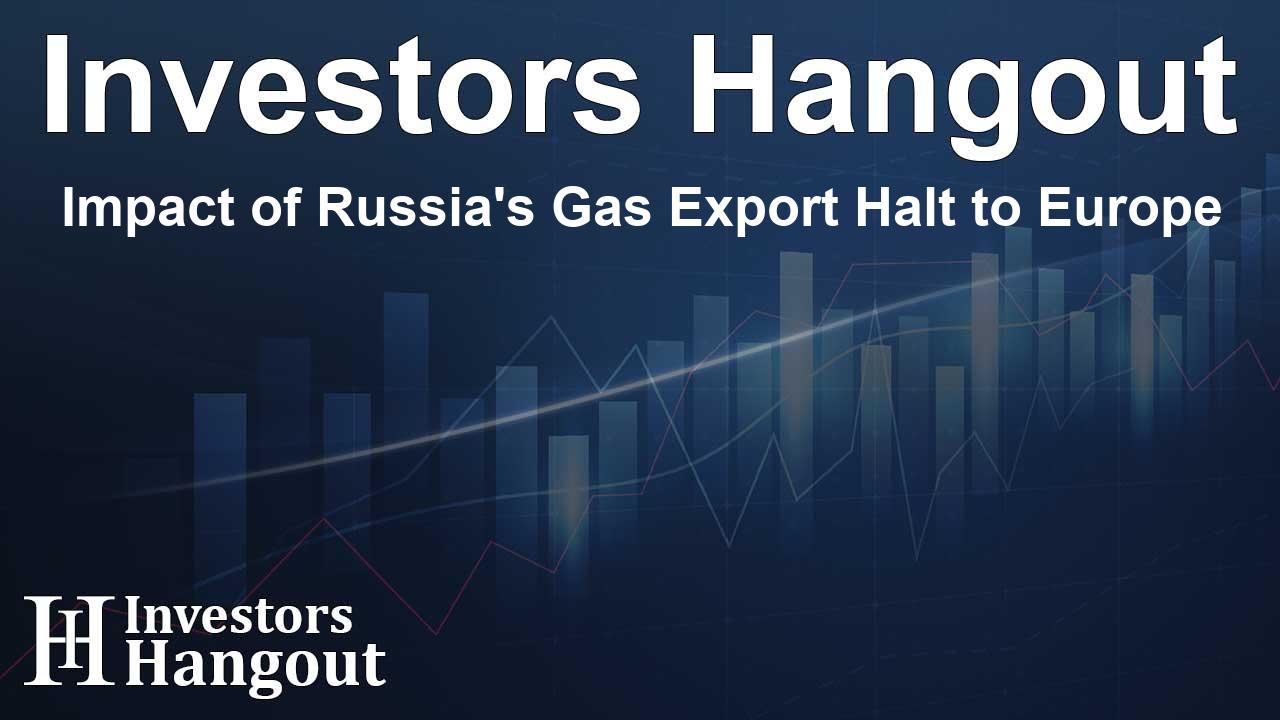Overview of the Gas Export Situation
In a significant development for European energy supplies, Russia's energy company Gazprom has announced the cessation of gas exports via Ukraine to Europe. This halt, effective from the early morning hours, marks a pivotal moment in the energy landscape of the continent.
Historical Context of Gas Exports
The cessation of this gas route represents the end of a long-standing transit agreement that has been in place for over a decade. The situation has evolved dramatically since 2014 when Russia's annexation of Crimea ignited tensions between Moscow and Kyiv, creating instability in energy negotiations.
Current Status of Gas Supply
Even with the halt in Ukrainian transit, Russia continues to utilize the TurkStream pipeline, which runs along the seabed of the Black Sea, to deliver gas to Europe. However, the implications of halting exports through Ukraine extend beyond just supply routes, affecting energy prices and availability across the region.
Impact on European Energy Security
Amid escalating tensions and a military conflict that erupted in Ukraine, the European Union has accelerated its initiative to reduce reliance on Russian energy. Efforts are being made to identify and secure alternative energy sources to bolster energy independence and adapt to the evolving geopolitical landscape.
Energy Transition Strategies
The expiration of the five-year gas transit deal, which was not renewed due to Ukraine's ongoing conflict with Russia, underscores the urgent need for the EU to diversify its energy supplies. In light of these developments, European nations are focusing on renewable energy sources and other international suppliers to mitigate the impact of this supply disruption.
Future Considerations
As the situation unfolds, the effects of Russia's actions on energy markets and international energy policies will likely be scrutinized. Continued efforts toward energy diversification and collaborations with other nations to secure stable energy supplies will be critical for Europe’s energy framework moving forward.
Frequently Asked Questions
What caused Russia to halt gas exports to Europe?
The halt was due to the expiration of the transit agreement with Ukraine and Kyiv's refusal to extend the agreement amid ongoing conflict.
How will Europe manage its energy supplies without Russian gas?
The EU is actively seeking alternative energy sources and increasing its focus on renewable energy to reduce dependency on Russian supplies.
What other routes does Russia use to export gas to Europe?
Currently, Russia exports gas via the TurkStream pipeline, which provides an alternative route bypassing Ukraine.
What are the implications of stopping gas exports via Ukraine?
This action could lead to increased energy prices in Europe and exacerbate existing energy supply challenges for the region.
Will the gas exports resume in the future?
At this point, the likelihood of resuming gas exports through Ukraine appears low due to the ongoing geopolitical tensions.
About Investors Hangout
Investors Hangout is a leading online stock forum for financial discussion and learning, offering a wide range of free tools and resources. It draws in traders of all levels, who exchange market knowledge, investigate trading tactics, and keep an eye on industry developments in real time. Featuring financial articles, stock message boards, quotes, charts, company profiles, and live news updates. Through cooperative learning and a wealth of informational resources, it helps users from novices creating their first portfolios to experts honing their techniques. Join Investors Hangout today: https://investorshangout.com/
Disclaimer: The content of this article is solely for general informational purposes only; it does not represent legal, financial, or investment advice. Investors Hangout does not offer financial advice; the author is not a licensed financial advisor. Consult a qualified advisor before making any financial or investment decisions based on this article. The author's interpretation of publicly available data shapes the opinions presented here; as a result, they should not be taken as advice to purchase, sell, or hold any securities mentioned or any other investments. The author does not guarantee the accuracy, completeness, or timeliness of any material, providing it "as is." Information and market conditions may change; past performance is not indicative of future outcomes. If any of the material offered here is inaccurate, please contact us for corrections.
